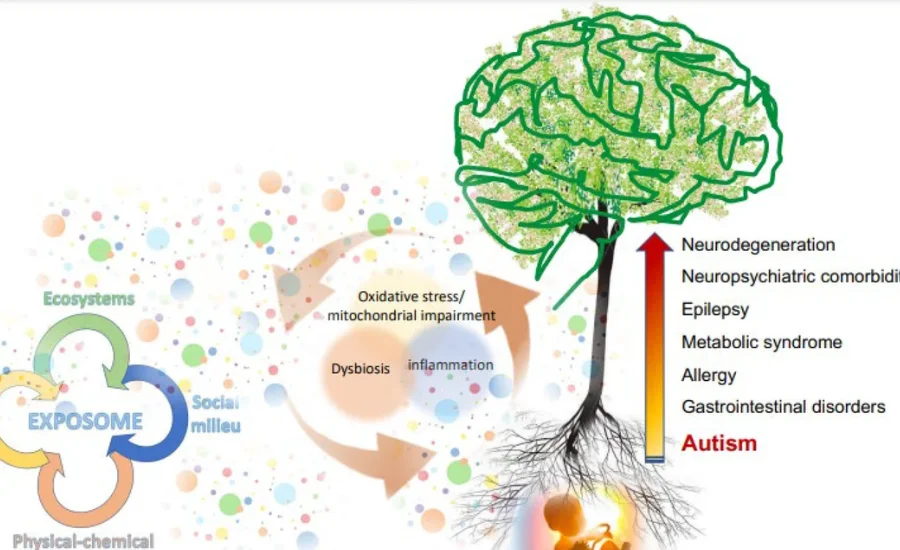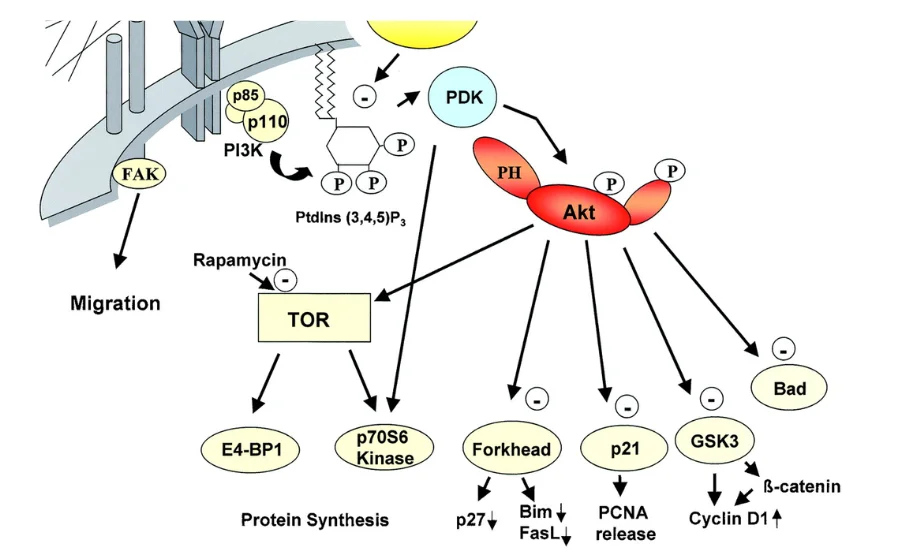The Impact of Pten 135leu Wynshaw-Boris on Neurodevelopment and Autism Spectrum Disorders
Pten 135leu Wynshaw-Boris neurodevelopmental disorders, especially Autism Spectrum Disorders (ASD), have been the subject of extensive scientific inquiry for many years. At the core of these conditions lies the intricate relationship between genetic mutations and the processes of neurodevelopment. A pivotal area of research centers on the PTEN (Phosphatase and Tensin Homolog) gene and its specific variants, such as the Pten 135leu Wynshaw-Boris variant.
Distinguished neuroscientist Dr. Anthony WynshawBoris has significantly advanced our knowledge of how these genetic alterations impact cortical neurogenesis, an essential step in the growth of new brain neurons. His research emphasizes the impact of PTEN mutations on neurodevelopmental pathways, highlighting how disruptions in cortical neurogenesis can lead to various neurodevelopmental issues, including ASD.
This article delves into the nuances of the Pten 135leu Wynshaw-Boris research, elucidating how these genetic modifications influence cortical neurogenesis and their implications for ASD and related disorders.We may learn a great deal about the underlying mechanisms of these complex illnesses by investigating the relationship between genetics and neurodevelopment. This will eventually lead to the development of potential therapeutic strategies and better outcomes for people with ASD.
Understanding Pten 135leu Wynshaw-Boris: An Overview of the Tumor Suppressor Gene

The PTEN (phosphatase and tensin homolog) gene is a critical tumor suppressor that plays a vital role in regulating cell growth, proliferation, and survival. This gene plays a key role in controlling cell signaling pathways, especially the PI3K/AKT pathway, which is necessary for several biological processes, including apoptosis, or planned cell death, and cell division. PTEN is a key defense against the development of cancer because, in most cases, it aids in preventing unchecked cell growth and division.
The molecule that starts the PI3K/AKT signaling cascade is called phospholipidinositol-3,4,5-trisphosphate, or PIP3. PIP3 is dephosphorylated by the PTEN protein to function.
PTEN functions as a negative regulator by eliminating phosphate groups from PIP3, which prevents overabundance signals that encourage cell proliferation and survival that may otherwise result in the development of tumors. In addition to preserving regular cellular functioning, PTEN’s regulatory role is essential for delaying the development of cancer. Understanding the mechanisms by which PTEN operates enhances our insight into potential therapeutic strategies for conditions associated with its dysfunction.
Exploring Pten 135leu Wynshaw-Boris and Its Impact on Neurodevelopment
In the context of neurodevelopment, PTEN is vital for the proper size and organization of the brain’s cortex. It achieves this by modulating various cellular pathways, particularly the PI3K/AKT signaling pathway, which is essential for cell proliferation and survival.
Mutations in the Pten 135leu Wynshaw-Boris gene are associated not only with an increased risk of cancer but also with a range of neurodevelopmental disorders. Research has shown that these mutations can lead to conditions such as macrocephaly, characterized by an unusually large head, as well as cognitive impairments that are commonly observed in individuals diagnosed with Autism Spectrum Disorders (ASD).
Pten 135leu Wynshaw-Boris mutations have two important effects on health: they emphasize the gene’s dual influence on neurodevelopmental problems and tumor growth by providing important insights into the processes underlying both. Continued research in this area is essential for uncovering potential therapeutic strategies that could address the effects of these mutations on brain development and function.
Pten 135leu Wynshaw-Boris: A Crucial Factor in Autism and Related Disorders
The Pten 135leu Wynshaw-Boris mutation represents a distinct genetic alteration in which leucine (Leu) is replaced by a different amino acid at the 135th position of the PTEN protein. This specific mutation disrupts the regulatory pathways that PTEN is responsible for, significantly affecting the process of cortical neurogenesis.
Individuals with this mutation often exhibit atypical patterns of neuron proliferation and differentiation, which can result in structural abnormalities within the brain. These structural changes are frequently linked to a range of neurodevelopmental disorders, including autism spectrum disorders, intellectual disabilities, and various cognitive impairments.
By understanding the implications of the Pten 135leu Wynshaw-Boris mutation, researchers can gain valuable insights into the molecular mechanisms that underlie these disorders. This knowledge is essential for developing targeted interventions that could improve outcomes for those affected by these neurodevelopmental challenges.
Pten 135leu Wynshaw-Boris and Changes in Cortical Neurogenesis

Dr. Anthony Wynshaw-Boris is a distinguished researcher in the field of neurogenetics, renowned for his extensive work on how alterations in cortical neurogenesis affect neurodevelopmental disorders. His research delves into the intricate relationship between genetic mutations and the resulting abnormalities in brain development.
The process by which new neurons grow in the cerebral cortex—the area of the brain in charge of higher order cognitive processes like reasoning, problem-solving, and decision-making—is known as cortical neurogenesis..The appropriate regulation of neurogenesis is essential for normal brain development; disruptions in this process can lead to a number of neurological conditions, including autism spectrum disorders (ASD).
Dr. Wynshaw-Boris has shed light on the critical role that genetic variables play in determining the structure and function of the brain through his groundbreaking research, offering important insights into the mechanisms underlying neurodevelopmental disorders. This knowledge is essential for creating interventions and treatments that effectively improve the lives of those impacted by these conditions.
Pten 135leu Wynshaw-Boris Insights into Cortical Neurogenesis and Neurodevelopment
In his research, Dr. Wynshaw-Boris has discovered that mutations such as Pten 135leu Wynshaw-Boris can disrupt the delicate balance of neurogenesis in the brain. This disruption can lead to either an overproduction or underproduction of neurons in the cortex, both of which negatively impact normal brain function. Such imbalances can result in structural abnormalities, including macrocephaly, characterized by an enlarged brain size, and irregular cortical layering. These structural changes are commonly observed in individuals with Autism Spectrum Disorders (ASD) and other neurodevelopmental conditions.
Dr. Wynshaw-Boris’ work also emphasizes the critical role of timing and environmental factors in neuronal differentiation.There can be serious cognitive and behavioral problems if neurons are created at the wrong periods or do not move to the correct places in the brain. This study emphasizes the intricacy of neurodevelopment and the demand for a thorough comprehension of the ways in which genetic alterations impact the structure and functionality of the brain.
The Link Between PTEN, Cortical Neurogenesis, and Autism Spectrum Disorders
Autism Spectrum Disorders (ASD) encompass a diverse array of symptoms, which often include challenges in social communication, repetitive behaviors, and restricted interests. Although the precise origins of ASD remain the subject of ongoing research, a significant genetic component has been identified. Among the various genetic factors studied, mutations in the Pten 135leu Wynshaw-Boris gene are particularly noteworthy.
These mutations have garnered attention for their potential role in the development of ASD, as they may contribute to the neurodevelopmental abnormalities associated with the disorder.It is essential to comprehend the genetic foundations of ASD, particularly the effects of particular mutations such as Pten 135leu Wynshaw-Boris, in order to advance research and create focused interventions that can improve the lives of people on the autistic spectrum.
PTEN 135Leu and Its Impact on Cancer Development

Mutations in the PTEN gene, particularly the PTEN 135Leu variant, have been extensively associated with the onset of various cancers. When PTEN loses its functional ability, it leads to the unchecked activation of the PI3K/AKT signaling pathway, which plays a crucial role in promoting cell survival, proliferation, and growth. This overactivation allows cells to bypass the usual regulatory mechanisms that control division and cell death, ultimately resulting in tumor formation.
The PTEN 135Leu mutation has been linked to several cancer types, including:
Breast Cancer: In this case, the loss of PTEN function can accelerate tumor growth and worsen patient outcomes.
Prostate Cancer: PTEN mutations are commonly found in prostate cancer cases and are known to contribute to the progression of the disease.
Glioblastoma: This aggressive form of brain cancer has also been associated with PTEN mutations, underscoring its role in tumor aggressiveness.
Studies on the PTEN 135Leu mutation have demonstrated its importance as a primary cause of these cancers and its promise as a target for novel treatment approaches. It is crucial to comprehend the processes via which PTEN mutations affect the onset of cancer in order to create new therapeutic strategies and enhance patient outcomes.
Also Read: Songbird Serenade MLP
Final Words
The Pten 135leu Wynshaw-Boris mutation is a significant genetic alteration linked to various neurodevelopmental disorders, particularly Autism Spectrum Disorders (ASD). This specific mutation affects the PTEN protein, a crucial tumor suppressor that regulates cell growth and signaling pathways, including the PI3K/AKT pathway. When mutated, PTEN loses its ability to control cell proliferation and survival, leading to imbalances in neuronal development.
Research indicates that the Pten 135leu Wynshaw-Boris mutation can result in abnormal neuron production and migration, contributing to structural brain anomalies often seen in individuals with ASD. These anomalies can manifest as cognitive challenges and behavioral issues, emphasizing the mutation’s role in neurodevelopment. Understanding this mutation is essential for developing targeted therapies and interventions that address the underlying genetic factors associated with these disorders. By studying the effects of Pten 135leu Wynshaw-Boris, scientists aim to enhance our knowledge of neurodevelopment and improve the lives of those affected by these conditions.
For More Information Check it Out: thrillrise






